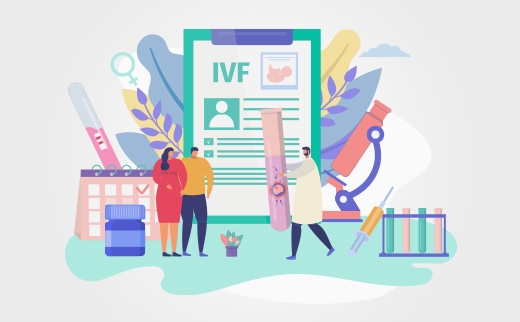
One of the best-known fertility treatments is in vitro fertilization, also known as IVF, a technique whereby eggs are collected from the ovaries and fertilized in the laboratory (in vitro) with sperm then the embryos placed into the womb to grow and develop.
IVF treatment in Turkey is affordable and yields higher success rates than in many other countries. The success rate of fertility clinics in Turkey is well-known in all other European countries, the U.S., Russia, Africa, Asian countries, and the Middle East. Besides the cost advantage and high success rates in IVF treatment, touristic opportunities make Turkey one of the most desirable countries in the world. There is no waiting list for IVF treatment at our IVF clinic in Istanbul. We start IVF treatment according to the patients’ availabilities.
IVF treatment costs vary depending on the Fertility Clinics in İstanbul. The cost of treatment in an IVF Clinic in Turkey varies between €2000-2500. The drugs that will be used during ovulation induction are not included in the IVF package prices. The drugs used can change according to the patient’s needs. The cost of IVF medicines varies between €700-800.
An excellent doctor (Reproductive Endocrinologist) and a very successful embryology laboratory will increase your IVF treatment success. During the treatment period, you should be at our Fertility Clinic in İstanbul for controls in certain days. Attention to the appointment hours and the recommendations and treatments advised to you will increase your IVF treatment success.
Failure to achieve pregnancy after one year of unprotected intercourse is defined as infertility. For women over the age of 35, this period is 6 months. Today, 15 out of 100 married couples receive medical help for having a baby.
40-50% of infertility is caused by women’s problems. Between 40%-50% of all infertility cases are due to male factor infertility. In 15-20% of the couples no problem can be detected in women or men.
The most important causes of infertility in women are ovulation problems, endometriosis or damaged or occluded fallopian tubes. Male factor infertility includes low sperm count, decreased sperm motility, and no sperm count.
After initial examinations and tests have been done, one of the treatments out of ovulation induction treatment, intrauterine insemination (IUI) or in vitro fertilization (IVF) treatment is decided according to the reasons of infertility in the couples.
Following the birth of Louise Brown in 1978, live births after IVF treatment occurred in Australia in 1980, in the USA in 1981 and in Sweden and France in 1982. Although its original intention was to treat women with tubal disease, IVF treatment can help couples overcome various types of infertility.
IVF Treatment allows scientists to manipulate the fertilization process in order to bypass some pathological obstacles such as blocked fallopian tubes and non-functioning ovaries in the females, and blocked vas deferens and low sperm count in the males.
In IVF treatment, the eggs are removed from the woman and fertilized in the laboratory environment with the sperm of the male and the resulting embryo is placed in the womb. Methods of IVF treatment have advanced dramatically since the first IVF baby was born in 1978.
IVF treatment costs vary depending on the Fertility Clinics in Turkey. The cost of IVF Treatment in Turkey varies between €1,700-2200.
Prof. Dr. Nilgün Turhan’s IVF Treatment package includes;
If we need to do some biochemical blood tests during your treatment cycle these will be included in the IVF cost. If some tests are necessary in your initial examination, such as HbAg, HCV, HIV, VDRL, blood type, hysteroscopy, HSG etc. will be charged.
The drugs that will be used during ovulation induction are not included in the IVF package price. The drugs that could be used can change according to the patient. The cost of IVF medicines varies between €700-800.
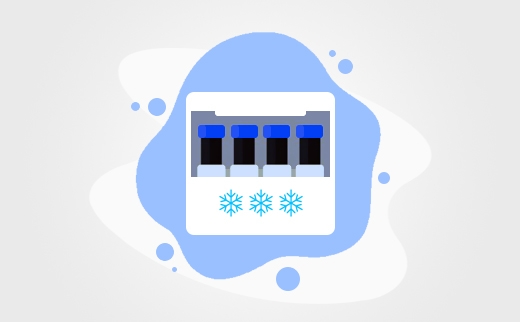
The freezing of eggs in Turkey is only allowed for the following conditions:
Egg freezing costs vary depending on the Fertility Clinics in Turkey. The costs of egg freezing in Turkey varies between €2000-2500.
Contact Prof. Dr. Nilgun Turhan for Fertility Treatment Prices.
Embryo donation treatment is prohibited in Turkey.
Egg donation treatment is prohibited in Turkey according to Turkish legislation.
Sperm donation treatment is prohibited in Turkey according to Turkish legislation.
For some couples IVF is the first-line treatment, such as tubal factor infertility while in other couples IVF may be recommended only if simpler treatments fail.
• Tubal factor infertility (Damage to Fallopian Tubes)/Pelvic Adhesions: Women who have damaged, scarred, blocked, congenital malformations or missing fallopian tubes causes difficulty becoming pregnant.
• Anovulation & Polycystic Ovarian Syndrome (PCOS): PCOS is a hormonal disorder which can cause prolonged or infrequent periods and sometimes an excessively high male hormone level. Because the ovaries develop numerous follicles, they fail to release eggs regularly. IVF is a very successful fertility treatment for PCOS patients.
• Endometriosis: Endometriosis with mild to moderate forms may be effectively treated with a combination of surgical and medical therapy. For more advanced stages of endometriosis, including widespread adhesions in the abdomen or the presence of endometriomas, IVF treatment is the optimal first line treatment and offers the highest pregnancy success rates.
• Male infertility treatment: In cases where sperm number and quality are severely impaired IVF treatment can help couples to conceive.
• Genetic diagnosis: Preimplantation Genetic Diagnosis (PGD) is used for patients who are at risk for passing on genetic disorders to their offspring as a result of one or both of the partners being carriers for the disease. Diseases such as Cystic fibrosis and Thalassemia are 2 examples of the hundreds of diseases and after diagnosis that can be tested for prior to embryo implantation only healthy embryos are transferred to the womb.
Preimplantation Genetic Screening (PGS) is indicated for women with recurrent pregnancy loss related to chromosomal abnormalities or repeated failed IVF attempts.
• Diminished Ovarian Function & Age-Related Infertility: During the course of a woman’s normal reproductive life, her ovarian function gradually decreases with age. For some women, this reduction in ovarian function may begin at an earlier age. In these cases, IVF treatment often helps to have a baby.
• Unexplained infertility: Approximately 15-20% of couples will have no identifiable cause of infertility after completing a comprehensive evaluation. IVF is often successful even if more conservative treatments have failed, especially since some of these couples may have yet unidentifiable causes of infertility or sub-fertility.
Sperm donation is strictly prohibited in male infertility treatment in Turkey according to Turkish legislation.
Azoospermia: IVF treatment cannot be performed in men who have no sperm found by micro- testicular sperm extraction (TESE) method and whose testicular biopsy has shown no sperm production.
Legislation strictly prohibits egg donation and surrogacy for female infertility treatment in Turkey.
Therefore, it is not possible in vitro fertilization treatment in Turkey for women:
IVF Treatment is a process that starts with evaluation of the couple and continues step by step until the pregnancy test.
After gynaecological examination and hormone tests hysterosalpingography (HSG) is performed before starting IVF treatment to evaluate the inside walls of the womb and the fallopian tubes. If HSG reveals some pathologies that prevent pregnancy, the necessary interventions are done.
The tubes that are damaged by infection, tuberculosis, endometriosis, ectopic pregnancy or a previous surgery, might become a fluid-filled sac called hydrosalpinx. In this case, before IVF treatment, these fluid-filled tubes must be removed by laparoscopy or the opening of the tube to the womb must be closed.
When problems such as polyps, fibroids, septum are detected in HSG, surgical corrections are made with hysteroscopic surgery before IVF treatment.
A semen test is performed to evaluate the male infertility. Normal values in sperm analysis are: sperm count> 15 million / ml, motility above 40% and structurally normal sperm ratio is at least 4% according to Kruger analysis. In cases where the number, movement or normal sperm rate is very low in the sperm test and cannot be corrected with other treatments, IVF is required.
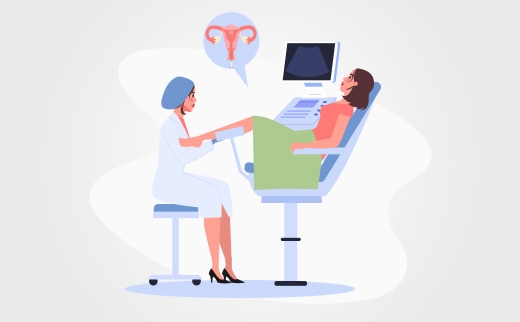
The ovaries are stimulated with daily hormone injections to ensure the growth of a sufficient number of eggs. The drugs used and their doses may vary depending on the person and the treatment protocol applied.
IVF Treatment is started on the second or third day of menstrual bleeding, ultrasonography is performed at regular intervals and the number and size of the developing eggs and the thickness of the endometrium lining the womb are followed. The aim of treatment is to obtain sufficient numbers of eggs. The stimulation phase of the ovaries takes about 9-12 days.
It is the process of collecting mature eggs with a needle using vaginal ultrasound under sedation anesthesia. Through vaginal ultrasound the eggs are taken out with the help of a special aspirator connected to the needle. In the laboratory, the egg cell is placed in the culture liquid medium and placed into the incubator. Egg collection takes about 15-20 minutes. After the procedure, the patient rests for a short time.
After oocyte retrieval all the eggs are placed in an incubator with culture medium and examined under a special microscope a few hours later. The incubator keeps the temperature 37 ° C and the carbon dioxide ratio constant at 5-6%. Out of all of the eggs collected from 17-20 mm size follicles approximately 80% are mature and ready for ICSI (Intracytoplasmic Sperm Injection).
In ICSI procedure one single sperm is injected directly to each egg one by one. Fertilization is checked after 16-18 hours. The embryos begin to divide in the incubator, from day 2 to the two-cell stage, to the 16-cell blastomere stage on Day 3, and then to the blastocyst stage, which is the last stage in which the embryo comes before transfer to the womb on Day 5.
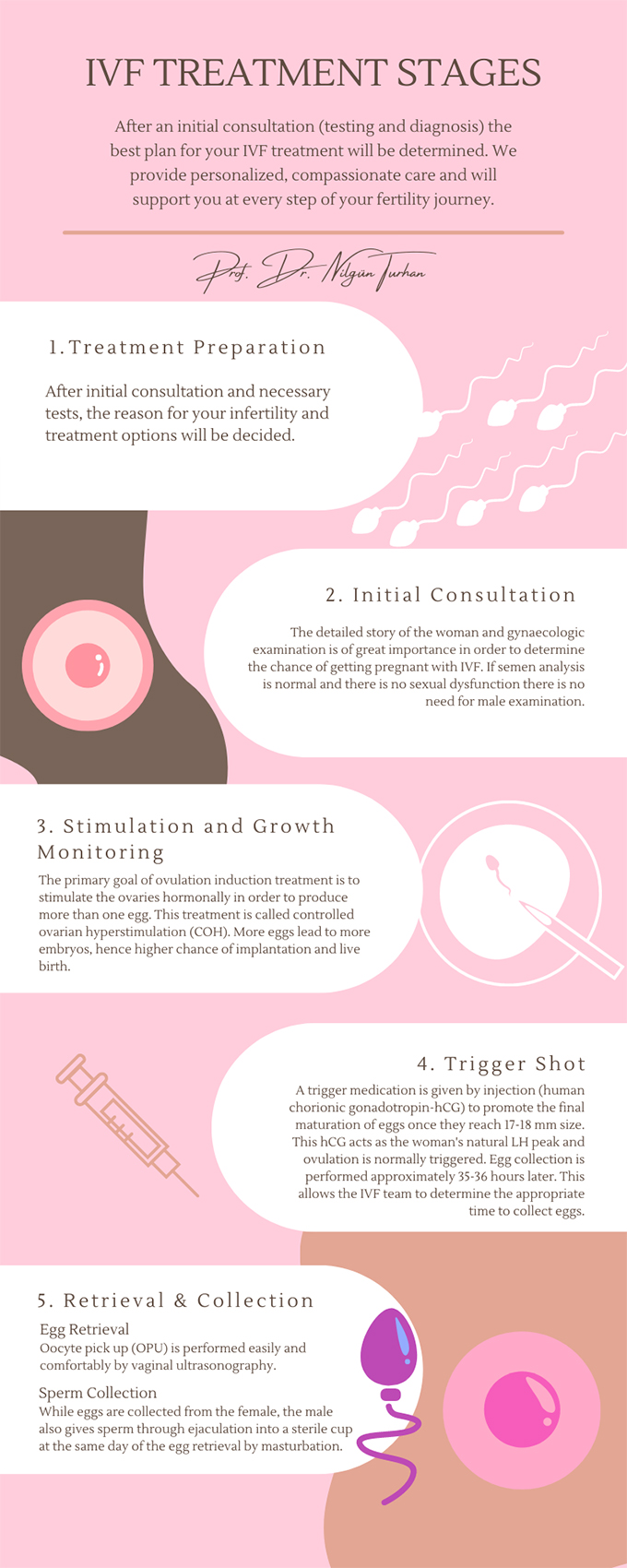
At the end of the laboratory process, the highest quality embryos are selected and transferred into the uterus. The number of embryos to be transferred is decided by considering the age of the woman, previous unsuccessful IVF attempts and the quality of the embryos. If more than two embryos are transferred, the risk of multiple pregnancy increases and so the number of embryos transferred is restricted up to two.
Embryo transfer is not a painful procedure and does not require anesthesia. After the procedure, progesterone hormone is given to the patient either in the form of injection, suppository or cream to support the endometrium. This treatment, called luteal phase support, and generally continues until the 10th gestational week if pregnancy occurs.
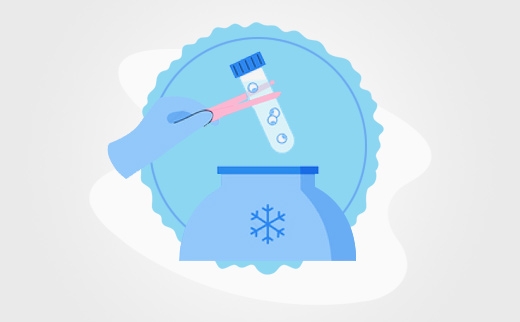
After one or two healthy embryos are transferred into the uterus, the remaining good quality embryos are frozen at the same day of embryo transfer or on the 5th day at the latest. In IVF treatment, the frozen embryos can be thawed and placed in the uterus in these situations, if:
Since the administration of hormone drugs to stimulate ovaries will be skipped in this method, the reduction in cost and treatment time also provides convenience to the couple. Freezing the excess embryos obtained in this way provides both an economic and psychological advantage to the patient. Embryo freezing can also be considered as a procedure that increases the chance of success in in vitro fertilization.
The last stage of IVF treatment is a pregnancy test. Pregnancy test is performed by measuring the values of Beta-hCG hormone in blood or in urine 12 days after 3rd day embryo transfer or 10 days after 5th day embryo transfer. Two weeks later ultrasound is performed to evaluate the gestational sac and the heart beats of the embryo.
To increase your IVF treatment success rate in İstanbul it’s better to consider some points after embryo transfer, which is one of the most important stages of IVF Treatment:
Gentle activity on the day of the embryo transfer is recommended. You can stay at home and walk around but avoid any physical effort. Although bed rest is not recommended, it may be helpful in some special cases.
During the following days after the embryo transfer, keep away from any heavy sports activities and sexual intercourse, baths and going to a swimming pool. Smoking, alcohol and drugs should be avoided.
You have to continue all your medications as advised by your doctor. These medications including progesterone will support the luteal phase and will increase the embryos chance to implant to the womb.
Any medication should be under the control of your doctor.
Care should be taken to a healthy diet. Foods such as raw meat, milk and fresh cheese should not be consumed that will cause infection.
10-12 days while waiting for the pregnancy test are usually very challenging from the emotional and psychological perspective. During this time, it is important to do things that you simply like to do. In addition to all these, you should adopt a stress-free lifestyle, think positively and pay attention to your health.
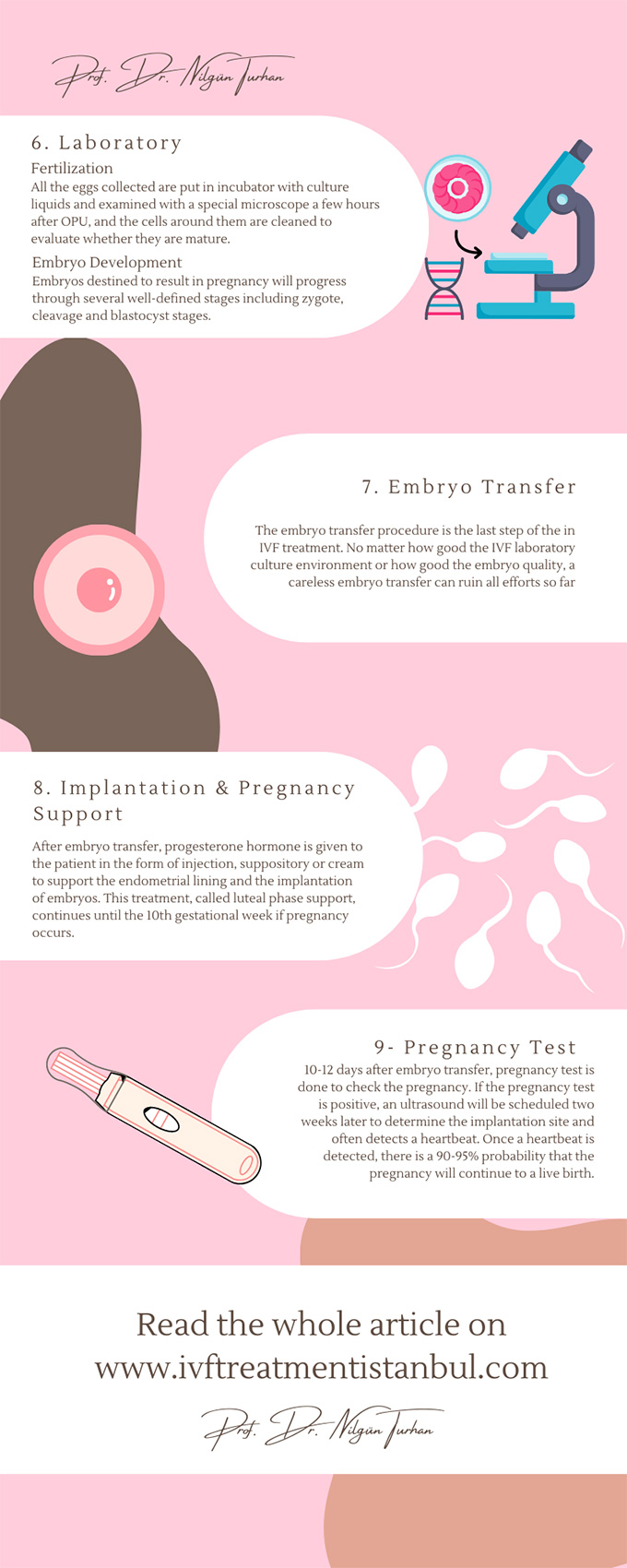
Turkey is one of the most selected countries as a destination for IVF treatment abroad. Turkey has many fertility clinics for IVF treatment and IVF treatment in Turkey is very attractive for many infertile couples because of the low cost and the high success rates.
Patient flow to Turkey has been gradually increasing because IVF treatment in Turkey is affordable and yields higher success rates than many other countries. The increase in the number of patients coming to Turkey from abroad for fertility treatment is around 15 percent in 2018.
Turkey’s success in the field of fertility treatments is well-known in all European countries, the U.S., Russia, Africa, Asian countries and the Middle East.
IVF treatment prices differ in every country and in every clinic. IVF treatment in the U.S. costs about $10,000 to $20,000, while in Europe, the prices differ from 3,000 to 9,000 euros. The prices also depend on the different types of medicines and treatment protocols used in treatments.
Some couples have waited for their turn for four or five years for IVF treatment in countries like the U.K. There is no waiting list for IVF treatment in Turkey. At our fertility clinic in Istanbul we start IVF treatment according to the patients’ preferences.
Besides the cost advantage and high success rates in IVF treatment touristic opportunities make Turkey one of the most desirable countries in the world.
IVF clinics are subject to legal audits by the Turkish Ministry of Health at every 6 months intervals. They check their equipment, staff, the physical environment and their records. The Ministry of Health revokes the licenses of the clinics that do not comply with the rules and the laws. All the fertility clinics in Turkey send all the reports and the documents and outcomes of the IVF treatments of the patients regularly to the Ministry of Health.
Fertility clinics in Turkey have to adhere to government legislation on IVF treatment.
Compared to some countries in Europe, the law in Turkey is quite strict about who is allowed to be treated and which treatments are allowed.
The law states:
IVF treatment is a method that requires the patient and the doctor to cooperate in harmony. Considering some issues about your health increases your chance to get pregnancy.
✓ Before coming for in vitro fertilization treatment in Istanbul it would be better to have a healthy weight. Loss of weight in obese patients increases the chance of pregnancy and helps to have a healthier and trouble-free pregnancy.
✓ Also having a healthy balanced diet before coming to Turkey for in vitro fertilization treatment will increase your IVF success rate. Eat fertility-enhancing foods which are rich in antioxidants like leafy greens which are a good source of iron and folate, fruits, nuts and grains. Antioxidants like folate and zinc may improve fertility for both men and women. They deactivate the free radicals in your body, which can damage both sperm and egg cells.
✓ Reducing your stress will help to increase your IVF success rate in Turkey. Before and during IVF treatment in İstanbul, care should be taken to lead a regular and stress-free life.
✓ Avoiding all toxic substances such as cigarettes and alcohol consumption will increase your IVF success rate in Istanbul.
✓ It’s better to start a multivitamin containing folic acid.
✓ Vitamin D is an essential nutrient that your body needs for many vital processes, including your IVF treatment success.
✓ Controlling chronic medical conditions such as high blood pressure, thyroid hormone disorders and diabetes may also improve your chance of having a healthy baby.
✓ Optimize sperm health. Based on the most recent World Health Organization (WHO) guidelines, experts consider a healthful sperm count to be 15 million per milliliter (ml),or at least 39 million per ejaculate. Like many aspects of our health, a man’s fertility is improved by adopting a healthy lifestyle that we mentioned all above. Any such changes in the man’s lifestyle will take almost three months to show an improvement in sperm.
✓ During your in vitro fertilization treatment in İstanbul try to be patient and insist on your treatment. Some patients need more than one cycle of IVF treatment to achieve an embryo for transfer or pregnancy. When treatment is not successful your medications might be adjusted to optimize your response.
✓ An excellent doctor and embryology laboratory will increase your IVF treatment success.
✓ During the treatment period, you should be at our Fertility Clinic in İstanbul for controls. Giving attention to the appointment hours and the recommendations and treatments you are advised will increase your IVF treatment success.
✓ Providing full information about your previous treatments will help the treatment to be more successful in your IVF treatment in İstanbul.
IVF is a safe and effective treatment for infertility. IVF treatment has very low risks to the patient. The risks include ovarian hyperstimulation syndrome, egg-retrieval procedure complications, ovarian torsion, ectopic pregnancy, miscarriage, multiple gestations, premature delivery and low birth weight, possible birth defects and cancer.
Babies born from IVF have the same low rate of birth defects as babies born from a natural conception. However, a minimal increase in sex chromosome disorders can be seen, especially in patients with severe male factors and undergoing microinjection (ICSI).
Although some studies show a slight increase in anomalies such as heart anomalies, neural tube defects and hypospadias, large series of studies show no significant difference in any congenital abnormalities and also in the development of the children born after IVF as compared to natural conception. In addition, no change is observed in later developments such as behavior and intelligence.
When a baby girl is born, her ovaries contain roughly 2 million oocytes, each encased in a protective covering called primordial follicle. These primordial follicles will sit dormant in a woman’s body for as long as 50 years or more until menopause, waiting for a signal that will cause them to leave the primordial pool and begin slowly to mature.
At the beginning of puberty, the woman has around 400,000 primordial follicles and they are consumed rapidly over the years and by the time of menopause they are almost all gone. During the normal menstrual cycle, most eggs disappear before they reach the mature egg stage and only one of them ovulate.
Along a follicle’s developmental path, from its first step as a primary developing follicle, through its secondary follicle stage, and on to its final stage as an antral follicle. It is the antral follicle that, under the influence of luteinizing hormone (LH) and follicle-stimulating hormone (FSH) will grow into a large mature follicle with a mature oocyte in its fluid core. In IVF Treatment, the development of 10 or more follicles is provided with the stimulation of ovaries with hormone injections, but these are antral follicles that will naturally disappear, so there is no damage to the ovaries.
There has been no proof that IVF treatment or the medications used in IVF lead to an increased risk of ovarian or breast cancers. The hormones used may have side effects that are not serious, but these are temporary side effects.
No permanent side effect or carcinogenic effect has not been demonstrated in a large series of studies. The hormones that are used in the IVF treatment are widely used in all parts of the world and each preparation is put on the market after strict controls.
Prof. Dr. Nilgün Turhan is not only an Excellent Doctor , she is simple, superb Human being, Sober, approachable, friendly approach with a smiling face with her selfless services. Always ...
Dear Professor Dr. Nilgun, I would like to express my sincere gratitude for the exceptional care you provided throughout my IVF journey. From our initial consultation, your professionali...
We traveled from TX after using two different IVF clinics in the US. After trying for so long we are finally pregnant. I highly recommend the clinic, the prices are very affordable and th...